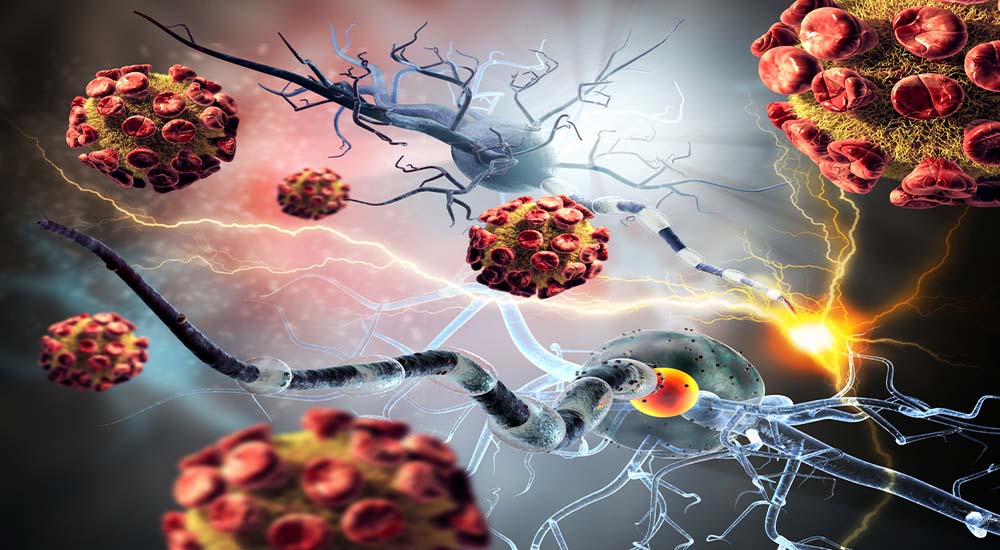Alert: Prevent Autoimmune Disease With 3 Steps

Autoimmune diseases are increasing at an alarming rate. They are painful, derail lives, and 50 million Americans suffer – predominantly women and female children. Researchers have identified 100 different autoimmune diseases, but there is suspicion of at least 40 more.
Some common autoimmune diseases include Type 1 diabetes, Celiac disease, Multiple sclerosis, Crohn’s disease, Lupus, Rheumatoid arthritis, Fibromyalgia, Parkinson’s disease, Alzheimer’s disease, ADD/ ADHD, Connective tissue diseases, and Vitiligo.
Autoimmune diseases are the eighth leading cause of death among women, shortening their average lifespan by fifteen years.
The number of patients afflicted has been growing steadily. As an example, the incidence of type 1 diabetes, lupus, and multiple sclerosis are skyrocketing, having more than doubled over the past three decades. Over the past forty years, childhood incidence of type 1 diabetes has increased five times.
It would be normal to ask the question if the apparency of increased incidence wasn’t solely due to better diagnosis. Researchers behind these studies claim that isn’t the case, however. Mayo Clinic researchers instead are asking if rising rates of lupus, as an example, are due to increased exposure to environmental triggers of some unknown origin. [Maybe not so unknown – read on!]
The average patient with autoimmune disease, a woman almost 80% of the time, visits six doctors before receiving a correct diagnosis and on average, experience approximately 5 years of being told “there is nothing wrong with you” from the doctors they do see. The American Autoimmune Related Diseases Association reveals 45 percent of autoimmune disease patients have been labeled as hypochondriacs in the early stages of their illnesses.
The President and Executive Director of the American Autoimmune Related Diseases Association (AARDA), stated: “With the rapid increase in autoimmune diseases, it clearly suggests that environmental factors are at play due to the significant increase in these diseases. Genes do not change in such a short period of time.”
A spokesperson from the National Institute of Environmental Health Sciences believes the increase in autoimmune diseases emanates from a persons’ surroundings. “The best way to combat the rise in autoimmune diseases is to do research to understand the genetic and environmental risk factors for them so that those who are at highest risk for developing disease after certain environmental exposures might be able to minimize those exposures and prevent the development of the autoimmune disease.”
The good news: We already know what the exposure is that we need to avoid. Read on!
The statistics are rather horrifying and the prognosis for most sufferers is depressing – most are told there is no cure for their disease and the best they can do is take drugs with dangerous side effects to try to keep symptoms at bay.
What if there was an easy protocol to follow that could diminish one’s risk of developing autoimmune disease?
What if there was something you were eating that factually triggered a substance in the body that caused certain autoimmune diseases?
An Italian research study, published at the end of 2015, shed light on a strong association between autoimmune disease and increased production of a certain protein within the intestine. Remember that autoimmune disease, by definition, means the immune system is attacking a part of the body. Where is the human immune system predominantly housed? It is in the intestine. Therefore such findings make a lot of sense.
Zonulin (interesting name, I know) is a protein only produced by humans. Interestingly, the autoimmune disease only occurs in humans – not a coincidence I assure you.
Zonulin is triggered by only two things that we know of:
1. Gluten
2. Bacterial infections – realize there can be chronic bacterial infections wherein one doesn’t necessarily feel ill or suffer from a fever when they are present.
Zonulin increases intestinal permeability (a leaky gut) and thereby allows substances that shouldn’t depart from the gut to do just that. These substances, whether they are partially digested food products or organisms capable of causing disease, trigger the immune system to react against them and, over time, can result in the immune system attacking organs, bones, or joints through a process known as molecular mimicry. Simply, the immune system initially reacts to something present in the bloodstream that shouldn’t be there, courtesy of a leaky gut, and eventually mistakes parts of the body for that initial foreign invader.
This mechanism of autoimmune disease as caused by a leaky gut is well established. Zonulin causes a leaky gut to occur and its production was initially thought to occur, secondary to gluten consumption, only in celiac patients. Celiac disease is an autoimmune disease itself and Dr. Fasano, who initially discovered the existence of zonulin, felt it was a substance particularly associated with celiac sufferers.
I remember distinctly hearing of research stating only those with celiac disease produced high levels of zonulin and therefore it was unlikely that patients suffering from gluten sensitivity (NCGS) would have an increased risk of autoimmune disease over the normal population.
I remember the moment so distinctly because it didn’t agree with my clinical findings of patients. Over the years we have met so many patients who did not have celiac disease but did suffer from gluten sensitivity. These autoimmune disease patients saw a great improvement in their respective autoimmune diseases once gluten was eliminated.
In fact, we wrote of this perceived connection in our first book The Gluten Effect. I still remember the chastisement I received from a variety of quarters due to disagreement with our statements. These individuals who disagreed with us felt it wasn’t factual to make an association between gluten sensitivity (NCGS) and increased risk of autoimmune disease. We agreed to disagree and continued vigilantly ruling out gluten reactions, be it a celiac disease or NCGS in all our patients.
Dr. Barbara and his team from the University of Bologna, Italy, performed the research I needed to support the findings we’ve seen clinically for so long. He measured zonulin production in four groups:
- 15 Healthy controls
- 15 Celiac disease patients
- 27 Gluten-sensitive patients
- 15 IBS patients, primarily suffering from diarrhea
The research team was surprised to find the production of zonulin in gluten-sensitive patients almost as high as those suffering from celiac disease. Celiac sufferers showed a zonulin level 5 times the normal healthy group. Gluten-sensitive patients revealed a level 4 times the normal group, and those with IBS had a rate of zonulin production double normal patients.
What’s the take-away?
There are definitive steps you can take to lessen your risk of almost 100 different autoimmune diseases – debilitating diseases that shorten and impact quality of life.
1. Find out if you’re having a negative reaction to gluten. Whether it is celiac disease or gluten sensitivity (NCGS), it’s critical to find out.
2. Ensure you don’t have any hidden bacterial infections, or for that matter, any infections of any kind including parasites, fungus, virus or yeast.
3. Heal the gut. If you have a leaky gut, find someone to help you heal it. Do realize that you can’t only “take something” to heal the gut if points one or two continue to occur. In other words you can’t expect the gut to heal from a supplement if the cause of the inflammation and damage continues to be present.
It is no coincidence that with decreased gut immune health has come increased autoimmune disease. It is there we must make the necessary changes. These changes are not difficult, nor do they involve dangerous drugs or surgery.
The human body is an amazing machine. In fact, it never ceases to amaze me. While the complexities of many of its systems are profound, the most important point to realize is, it’s a machine that WANTS and is DESIGNED to function optimally. The reason I emphasize this is that “fixing” the human body isn’t terribly difficult. When this incredible machine is given the right assistance, it works with you to heal itself. It is a beautiful thing to behold and why I delight every day in what I do.
Do you need help with your health?
We have the diagnostic and testing tools, the clinical experience, and a different medical approach to discovering the root cause of why you have the symptoms that are bothering you. As long as you are ready to make some dietary and lifestyle changes, we can help you. We will "hold your hand" through the changes, step by step, to make each step an easy one. We are located in Clearwater, FL, at 1000 S Ft Harrison, at the corner of Ft. Harrison Ave. and Magnolia St. There is plenty of parking space directly accessible from Ft Harrison. If it is not convenient for you to come to Root Cause Medical Clinic, we offer telehealth/telemedicine consultations to residents of certain states. Call us for details.
Contact us for a Consultation – Call 727-335-0400

Dr. Vikki Petersen DC. CCN
Founder of Root Cause Medical Clinic
Certified Functional Medicine Practitioner
Dr Vikki Petersen is a public speaker, author of two books, several eBooks and creates cutting edge content for her YouTube community. Dr Vikki is committed to bringing Root Cause Medicine and its unique approach to restoring health naturally to the world.
Ask a Doctor
Have a health concern you'd like to speak with a doctor about? Or just want clarity on a subject? Ask Us!
Featured Articles
Popular Stories
References:
1-3. The Autoimmune Epidemic: Bodies Gone Haywire in a World Out of Balance–and the Cutting-Edge Science that Promises Hope by Donna Jackson Nagazawa
4. Zonulin: An Objective Indicator of Non-Celiac Gluten Sensitivity, Friday, 30 October 2015, Dr. Giovanni Barbara of the University of Bologna.


